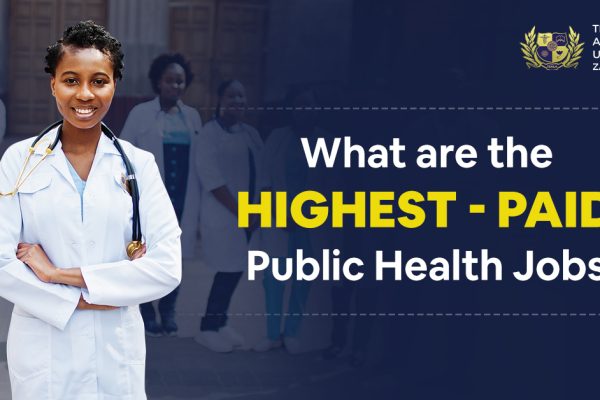|
Tired of Reading? Please listen to the blog
|
Blog Summary
Discover the transformative power of a Master of Public Health (MPH) degree in advancing your career in public health. This guide covers everything from understanding the intricacies of top MPH programs to exploring diverse career paths. Learn about the benefits of pursuing an MPH, navigating program curriculums, and maximizing resources for success. Whether you’re passionate about epidemiology, health policy, or community engagement, an MPH opens doors to impactful roles in improving population health and addressing global challenges. Embrace the journey from passion to profession with the ultimate MPH degree guide.
- Introduction
- Understanding the Master of Public Health (MPH) Degree
- Importance of Choosing the Best Master of Public Health Program
- The Benefits of Pursuing an MPH Degree
- Networking Opportunities: Connecting with Industry Professionals
- Exploring Master's Degree Programs in Public Health
- Navigating the Master of Public Health Course
- Tips for Success in Pursuing an MPH Degree
- Realizing the Potential: Career Opportunities with an MPH Degree
- Conclusion
- FAQs
Introduction
Setting the Stage: The Growing Importance of Public Health
– Discuss the increasing significance of public health in addressing global challenges such as pandemics, chronic diseases, and environmental health issues.
– Emphasize the part played by public health experts in promoting health equity, disease prevention, and community well-being.
According to the World Health Organization (WHO), investing in public health initiatives yields a return of $1.40 for every dollar spent, emphasizing the critical role of public health professionals in improving community well-being.
The Role of Education in Advancing Public Health Careers
Introduce the importance of pursuing advanced degrees like the Master of Public Health (MPH) for individuals aspiring to make a difference in public health.
– Preview the content outline and discuss the significance of choosing the best MPH program for career success.
Understanding the Master of Public Health (MPH) Degree
Defining the MPH: What It Entails
– Define the Master of Public Health (MPH) degree as a professional graduate program designed to prepare individuals for public health practice and policy leadership roles.
– Highlight the interdisciplinary nature of the MPH, which integrates knowledge from various fields such as epidemiology, biostatistics, environmental health, and health policy. The Centers for Disease Control and Prevention (CDC) reports that public health challenges, such as obesity and chronic diseases, cost the U.S. economy billions annually, underlining the urgent need for trained public health professionals.
Importance of Choosing the Best Master of Public Health Program
Factors to Consider: Reputation, Accreditation, and Curriculum
– Discuss the importance of selecting an accredited Master of Public Health program recognized for its quality education and adherence to professional standards.
– Assessing MPH programs is significant, and aspects like faculty expertise, available research opportunities, and alums success must be carefully considered.
Top MPH Programs: A Comparative Analysis
– Provide an overview of some of the top MPH programs worldwide, highlighting their distinguishing features, rankings, and areas of specialization.
– Include examples of renowned institutions offering the best public health degrees and their contributions to public health research and practice.
The U.S. News & World Report’s rankings consistently highlight institutions like Harvard University and Johns Hopkins University for their top-ranked MPH programs, emphasizing their commitment to excellence in public health education.
The Benefits of Pursuing an MPH Degree
Skill Enhancement: Developing Expertise in Public Health
– Discuss how a Master of Public Health degree equips students with essential skills such as data analysis, program evaluation, health communication, and policy advocacy.
– Highlight the practical experience gained through fieldwork, internships, and research projects as integral components of MPH education.
A study by the Association of Schools and Programs of Public Health (ASPPH) found that graduates with an MPH degree experience a 25% higher median salary compared to those with a bachelor’s degree, showcasing the financial rewards of advanced public health education.
Networking Opportunities: Connecting with Industry Professionals
– Explore the networking advantages of attending an MPH program, including opportunities to collaborate with faculty, fellow students, and public health practitioners.
– Discuss the role of professional organizations, conferences, and alumni networks in facilitating career connections and mentorship for Master of Public Health graduates.
Career Advancement: Unlocking Opportunities with an MPH
– Outline the diverse career paths available to Master of Public Health graduates across sectors such as government agencies, nonprofit organizations, healthcare institutions, academia, and private industry.
– Highlight the potential for career advancement and leadership roles within the public health field, including positions as health educators, epidemiologists, policy analysts, and program managers.
Exploring Master’s Degree Programs in Public Health
Beyond the MPH: Other Master’s Degrees in Public Health
– Introduce alternative master’s degrees in public health, such as Master of Health Administration (MHA), Master of Science in Public Health (MSPH), and specialized master’s programs in global health, health informatics, and health policy.
– Compare and contrast the curriculum, career outcomes, and target audience for different types of public health master’s degrees.
Specializations within Public Health Master’s Programs
– Discuss the importance of selecting a specialization or concentration within a public health master’s program based on career goals and interests.
– Highlight common specializations such as epidemiology, biostatistics, environmental health, health promotion, and health policy, as well as their respective roles in addressing public health challenges.
Navigating the Master of Public Health Course
Curriculum Overview: Core Subjects and Electives
– Provide an overview of typical MPH curriculum components, including core courses covering foundational public health concepts and specialized electives tailored to students’ interests.
– Highlight examples of core subjects such as epidemiology, biostatistics, health behaviour, environmental health, health policy, and management.
Practical Learning: Internships, Research Projects, and Fieldwork
– Discuss the importance of hands-on learning experiences such as internships, practicums, and fieldwork placements in MPH programs.
– Highlight the value of applied research projects and community-engaged initiatives in translating classroom knowledge into real-world impact.
– Share examples of Master of Public Health program partnerships with local health departments, community organizations, and international agencies to provide students with diverse experiential learning opportunities.
Tips for Success in Pursuing an MPH Degree
Time Management: Balancing Studies and Personal Commitments
– Offer practical advice for managing the demands of an MPH program while juggling work, family, and other responsibilities.
– Discuss strategies for effective time management, including prioritizing tasks, setting realistic goals, and maintaining self-care practices to prevent burnout.
Maximizing Resources: Utilizing Academic Support and Career Services
– Highlight the importance of leveraging academic resources such as faculty mentorship, tutoring services, and library resources to enhance academic success.
– Discuss the role of career services offices in providing resume assistance, interview preparation, job postings, and networking opportunities for Master of Public Health students and alums.
Realizing the Potential: Career Opportunities with an MPH Degree
Diverse Career Paths: Public Health Sector and Beyond
– Explore the wide variety of employment possibilities available to Master of Public Health graduates within the public health sector, including roles in government agencies (e.g., CDC, WHO), nonprofit organizations, healthcare delivery systems, research institutions, and consulting firms.
– Highlight emerging career trends in global health security, data science, digital health, and social determinants of health.
The Bureau of Labor Statistics (BLS) projects a 32% increase in demand for health educators and community health workers by 2030, highlighting the growing need for professionals trained in public health promotion and education.
Impactful Roles: Making a Difference in Communities
– Illustrate the meaningful impact of public health careers through case studies or testimonials from MPH alums working on initiatives to improve population health, reduce health disparities, and promote health equity.
– Emphasize the importance of ethical practice, cultural competence, and community engagement in addressing complex public health challenges and advancing health justice.
Conclusion
Embracing the Journey: From Passion for Public Health to Professional Success
– Reinforce the message that pursuing a Master of Public Health represents a transformative journey toward realizing one’s passion for improving the health and well-being of communities.
– Encourage prospective MPH students to carefully consider their career goals, values, and personal strengths when selecting an MPH program and charting their path in public health.
Data from the National Institutes of Health (NIH) demonstrates that public health interventions, such as vaccination programs and health education campaigns, have contributed to significant reductions in preventable diseases and mortality rates worldwide, underscoring the impact of public health initiatives.
Final Thoughts: Investing in a Master of Public Health for a Fulfilling Career
– Summarize the benefits of earning a master’s degree in public health, including skill development, networking opportunities, and diverse career pathways.
– Express optimism for the future of public health and the vital role of Master of Public Health graduates in addressing current and future health challenges on local, national, and global scales.











